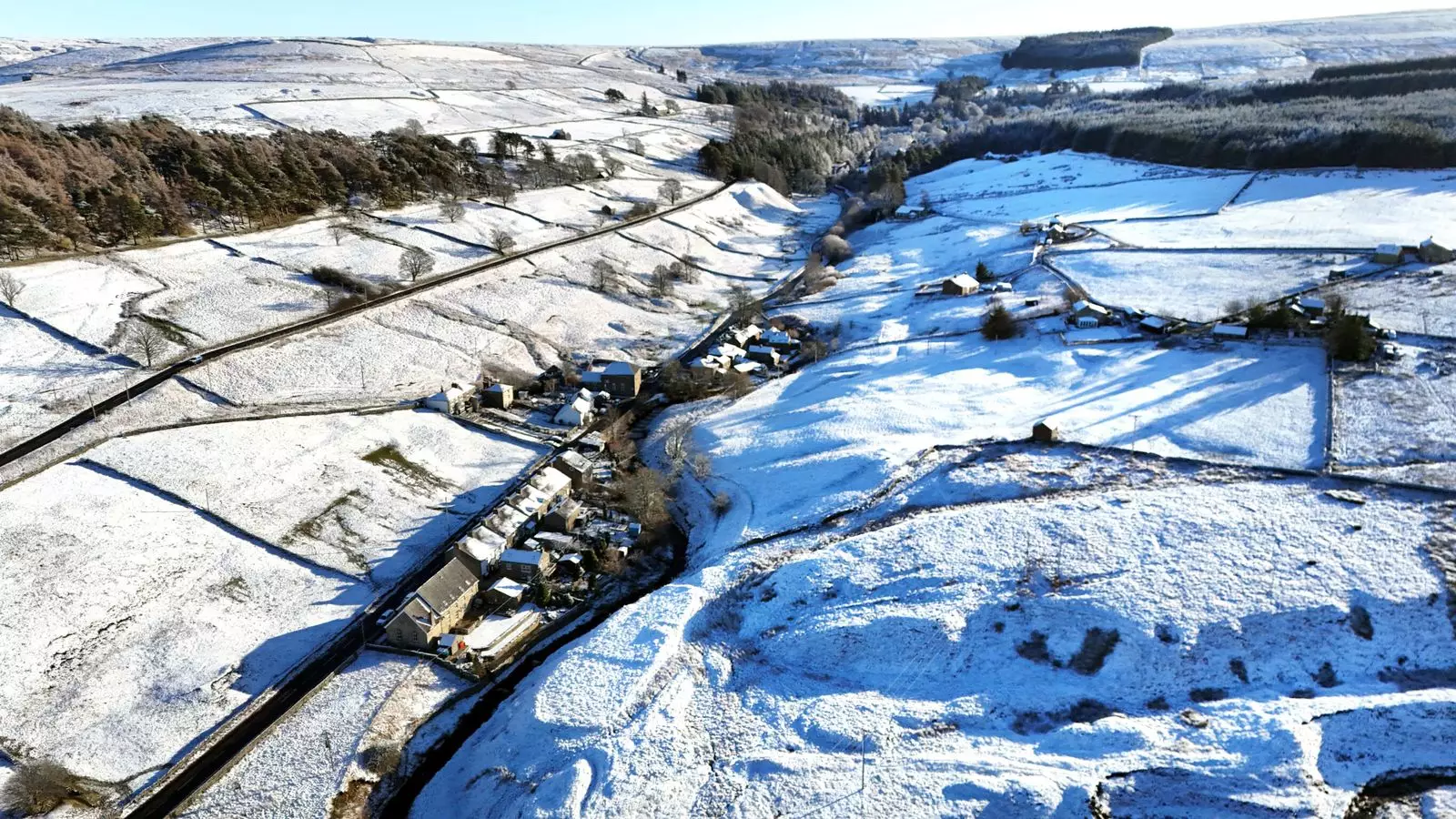The United Kingdom is bracing for an intense cold snap, with forecasters predicting temperatures to plunge to a chilling minus 8 degrees Celsius. Weather warnings for snow and ice have been issued and will be in effect throughout the weekend, indicating hazardous conditions. The UK Health Security Agency (UKHSA) has proactively issued alerts across all of England, which underscores the seriousness of the situation. This week, citizens, particularly those aged 65 and over or with preexisting health conditions, are advised to exercise extraordinary caution as the risk of health complications rises amid winter’s harsh grip.
According to meteorologist Dan Stroud from the Met Office, this cold weather is expected to create widespread frost conditions, affecting individuals throughout the nation from Cornwall to the Scottish Highlands. Stroud specifies that temperatures will remain significantly below seasonal averages, with the worst of the cold predicted to hit northern England and Scotland. The implications of these warnings are far-reaching, particularly for vulnerable populations who may face increased risks during these frigid conditions.
Local health boards, such as NHS Black Country, have issued recommendations for the public to avoid going out during peak frost times and nighttime, emphasizing the need for appropriate footwear and keeping hands free. They are essential measures to prevent slips and falls on icy surfaces, which can lead to serious injuries among older adults. Furthermore, community health services like the Wye Valley NHS Trust have urged residents to stock up on food and medication, stressing the importance of home insulation to minimize exposure to the cold.
Municipal Responses to the Cold Snap
In response to the extreme weather conditions, London councils activated emergency measures to assist the homeless population, including additional accommodation provisions for those sleeping rough. Emergency protocols have been in place for several nights this winter, reflecting the ongoing challenge of keeping vulnerable individuals safe during record low temperatures. Communities are mobilizing resources to ensure that those without stable housing can find shelter, a crucial step in mitigating the adverse effects of the cold.
The Met Office has issued multiple weather warnings as the weekend approaches, predicting a potential snowfall that could cause significant travel disruptions. The anticipated snowfall of 5 to 30 centimeters, particularly in northern regions and higher grounds, could create treacherous conditions for motorists and pedestrians alike. Icy roads and pathways combined with strong winds may lead to dangerous snowdrifts, raising the stakes for those who must venture out.
This severe weather event arises against the backdrop of a changing climate, which increasingly presents new challenges to public health and safety. Authorities are reminded not only to address immediate threats but also to consider long-term strategies for coping with increasingly volatile conditions. This includes improving infrastructure resilience, enhancing community preparedness, and ensuring that vulnerable groups have access to vital resources during crises.
As temperatures are projected to rise slightly by the end of the weekend, the respite will be fleeting. Meteorologists indicate further cold fronts may sweep in shortly after. The need for continuous vigilance remains paramount, and communities must work collectively to protect their most vulnerable members from the elements, particularly as extremes become more common in the future.
As the UK prepares for a significant drop in temperatures and potential snow accumulation, safety should be the foremost concern for all residents. Public health officials are urging precautionary measures while local governments are acting swiftly to provide support for those in need. While temporary improvements in weather conditions may occur, the public must remain aware of the continuing risks inherent in winter weather, making preparedness vital to navigating the challenges ahead. This deep freeze serves as a reminder of the unpredictability of seasonal weather and the necessity for a community-centered approach to health and safety in the face of climate extremes.

Leave a Reply